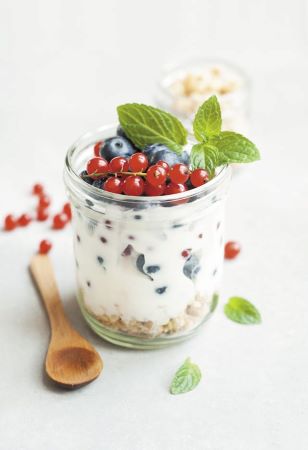Nurturing Your Second Brain for Mental Wellbeing
Most of us have experienced that ‘gut feeling’ nudging us towards making a particular decision in life or felt those ‘butterflies’ when nerves or excitement kick in. Recent studies show that maybe it’s more than just intuition; in fact, it’s the intricate connection between our gut and our brain at work. We will dip into this fascinating yet complex connection, what triggers it, and how nurturing our gut can help positively impact our mental wellbeing.

The Gut: Our Second Brain
Our gut and brain engage in a continuous dialogue with each other through a sophisticated network known as the ‘gut-brain axis.’ This system involves the interplay of hormones, immune signals, and neural pathways. Often dubbed ‘our second brain,’ recent studies (1) highlight how our gut bacteria can impact our emotional wellbeing through the profound link between our gut and mental health. Disturbances in the gut microbiome have been linked to conditions like anxiety, depression, and neurodegenerative diseases.
Serotonin: Our Happy Chemical
Within our gut resides a bustling community of bacteria that communicate with our brain via neurotransmitters like serotonin, often referred to as our “feel-good” chemical. This communication is facilitated by the ‘vagus nerve,’ the body’s longest nerve network, and is intimately linked with serotonin. It regulates essential processes like immune function, neurotransmitter production, and inflammation, as well as the gut. Surprisingly, around 90% (2) of our serotonin is produced by cells in our gut, making it crucial for both digestion and mood regulation. It thrives when our gut microbiota flourishes. Conversely, disruptions in gut bacteria triggered by factors like poor diet or stress can diminish our serotonin levels, impacting our mood negatively. So nurturing gut health extends beyond just digestive concerns; it’s also an investment in mental wellbeing.
Navigating Stress & Gut Health
Studies (3) show that chronic stress doesn’t just weigh on our minds; it can also upset the intricate balance of our gut microbiome, potentially triggering digestive issues. Alongside the gut microbiota lies the HPA axis, our body’s natural stress response system, regulating hormone production and cognitive function. When stress persists, this balance can tip, releasing stress hormones like cortisol. Elevated cortisol levels not only affect gut health but also profoundly influence mental wellbeing, impacting mood, cognition, and emotional regulation.

This intricate interplay between stress hormones and the gut-brain axis illustrates how stress can affect both gut health and mental wellbeing, highlighting the importance of stress management.
So How Can We Nurture Our Gut to Support Our Mental Well-being?
Gut Diversity
Variety and diversity in our diet are key pillars for fostering a thriving gut microbiota, as every plant food has different prebiotics to feed different gut bacteria. By incorporating a wide range of whole plant foods diverse in colour such as fruits, vegetables, legumes, whole grains, nuts, and seeds, we help our gut diversity by encouraging more good bacteria.
Probiotics & Prebiotics
Including probiotic-rich fermented foods like yogurt, kefir, kimchi, sauerkraut, miso, tempeh, and kombucha, which are abundant in beneficial bacteria such as ‘Lactobacillus,’ can help to crowd out harmful bacteria and support an acidic environment in our gut to stop the growth of pathogens. Incorporating prebiotic foods like bananas, garlic, onions, leeks, asparagus, chicory, and apples into your diet can also support the growth of beneficial gut bacteria by providing the fibre they need to thrive. Taking a probiotic supplement may also be a consideration. However, if you’re experiencing gut issues and are uncertain about the root cause, a stool test may provide valuable insights. For instance, probiotics may not be well-tolerated, especially if there’s an underlying condition like Small Intestinal Bacterial Overgrowth (SIBO).

Manage & Reduce Stress
Stress reduction techniques, such as mindfulness, meditation, and activities that stimulate the Vagus Nerve, can be beneficial to our gut and minds alike. Diaphragmatic breathing, and even laughter, singing, and humming, stimulate our vagus nerve (4), and can influence gut microbiota composition, reduce inflammation, and increase the production of neurotransmitters like our feel-good hormone ‘serotonin,’ promoting a healthier gut-brain axis.
Limit Antibiotic Use
While antibiotics may be necessary in some instances in fighting bacterial infections, their excessive and prolonged use can wreak havoc on our gut microbiota. They indiscriminately wipe out both harmful and beneficial bacteria essential for digestive health. It’s vital to reserve their use for genuine needs and explore probiotic supplementation during and after treatment to safeguard our microbiome.
Get Moving
Regular exercise not only uplifts mood but can also positively influence gut microbiome diversity and composition. Research (5) shows how exercise can positively influence gut health, helping reductions in inflammation, improvements in gut microbiota diversity, and the production of beneficial microbial substances like short-chain fatty acids which play a part in enhancing gut-brain communication.

Other Lifestyle Matters
Beyond diet and stress management, other lifestyle factors can also play an important role in maintaining a healthy gut and promoting mental wellbeing. Getting sufficient quality sleep, staying hydrated by drinking plenty of water, and cultivating meaningful social relationships to support emotional resilience and psychological health are all important aspects to consider.
Functional Stool Testing
When experiencing any persistent gut symptoms (including bloating, abdominal pain, nausea, gas, constipation, diarrhoea), seeking personalised professional guidance and functional stool testing can help pinpoint the root causes, allowing for targeted strategies to support gut health and ultimately mental wellness.
Nurturing our gut health is not just about digestion; it’s a vital component of maintaining mental wellbeing.

If you’re looking for personalised guidance tailored to your unique needs, consider consulting with a nutritional therapist.
We can help identify a specific protocol to implement & support your journey toward optimal gut health & mental wellbeing.
Sources
- Ullah et al. 2023: The gut microbiota–brain axis in neurological disorder
- Barandouzi et al. 2022: Associations of neurotransmitters and the gut microbiome with emotional distress in mixed type of irritable bowel syndrome
- Foster et al. 2017: Stress & the gut-brain axis: Regulation by the microbiome
- Browning et al. 2017: The Vagus Nerve in Appetite Regulation, Mood, and Intestinal Inflammation
- Clauss et al. 2021: Gut microbiome and exercise
Main – Photo by Pixabay



